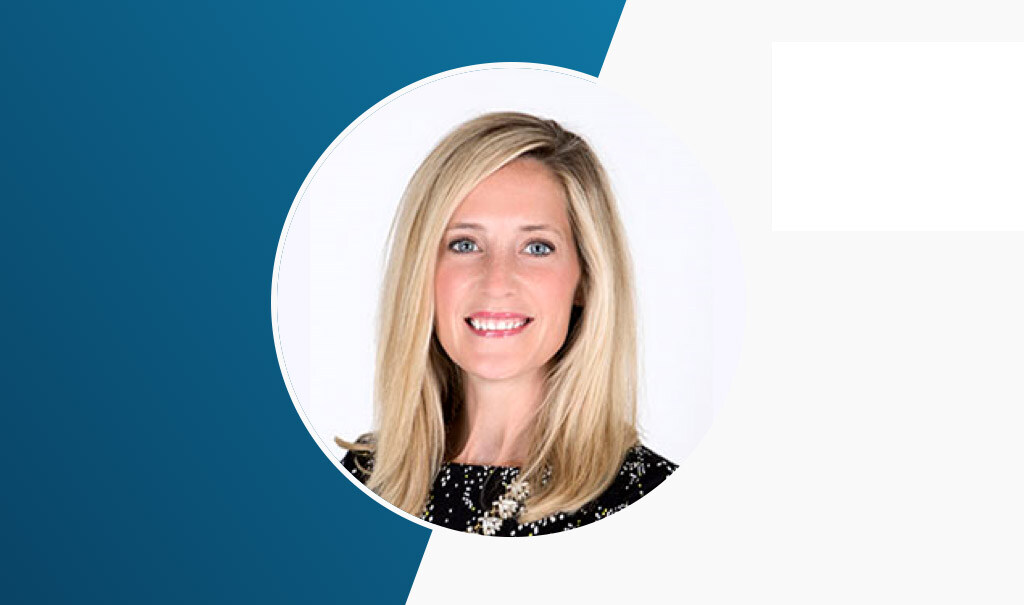
February 28, 2018
Benefit strategist Rachel Miner on the "biggest myth" in healthcare

Sophia Lee
Sophia is on the communications team at Amino, where she helps share industry perspectives.
"Sometimes I’ll show professional people the data around this and they’ll be like 'oh my gosh, this is crazy!'"
We recently had the chance to connect with Rachel Miner, an employee benefit strategist at Employee Benefit Advisors of the Carolinas. Her role is to think outside-the-box about the best ways to control escalating healthcare costs.
In this Q&A, we hear Rachel’s thoughts on the healthcare benefits trends she’s most excited about, why she chooses to collaborate instead of compete with other brokers, and more.
What’s one thing you wish everyone knew about your job?
I think it’s a common misconception that insurance consultants work for the employer. One thing to know about me: I don’t work for the employer — I work for the employees.
At the end of the day, I’m more concerned about changing an existing plan and putting a high-deductible health plan in place and thinking about how it impacts the $11/hour employee rather than the CFO. That $11/hr employee sees it as a negative benefit whereas the CFO sees it as a savings vehicle. Of course, I certainly want to help employers proactively manage costs but, more than anything else, I want to make sure employees feel taken care of, valued, and protected.
What recent news or trend has you most excited about the healthcare benefits space, and why?
One trend I’m excited about is consultants starting to speak out in favor of fair compensation. In the past, the benefits industry used to be a gravy train — if a consultant did a bad job, they would still get a raise. Now more and more people, myself included, are doing pay-for-performance compensation, which is great because it gets me more engaged with my clients and helps employers feel like I’m sitting on the same side of the table as them.
Another trend I’m seeing is increasing open mindedness from employers toward independent consulting agencies. In years past, an independent firm was viewed as inferior to a national shop because it was assumed that we don’t have the same capabilities. In today’s market, however, it’s a huge competitive advantage. We have the freedom to not put people in a box: we can custom tailor so many more things, have the flexibility and nimbleness to be able to execute on it, and not go through a bureaucratic chain of command.
What’s a "myth" in the healthcare benefits space that you'd like to debunk?
Here’s the biggest myth: more expensive equals better quality. In every other aspect of our lives, we’re conditioned to think that. If we see someone with a Range Rover or Louis Vuitton, we think they have the best car or purse. That’s not true in healthcare.
Some of the lowest quality facilities can have the highest costs. A lot of people don’t know this. Sometimes I’ll show professional people — lawyers and even physicians — the data around this and they’ll be like “oh my gosh, this is crazy!”
What’s a common misconception employers have when implementing cost and quality transparency initiatives for their employees?
I think it depends on the market. For instance, one of my niche markets is manufacturing. A common misconception by these employers is thinking their employees won’t understand how to shop for healthcare. Here’s the thing: everybody today shops for everything — cars, vacations, a gallon of milk, you name it. But when it comes to healthcare, employers think it’s too hard because they’re used to the clunky old websites of carriers and aren’t expecting something user friendly.
“Everybody today shops for everything — cars, vacations, a gallon of milk, you name it. But when it comes to healthcare, employers think it’s too hard because they’re used to the clunky old websites of carriers and aren’t expecting something user friendly.”Rachel Miner
Employee Benefit Strategist
While I think employers should play a role in educating their employees about this, it’s ultimately my responsibility to follow through and help my clients see the ROI and VOI of the products I introduce. If my team and I don’t have ongoing communication with the employees, we’re doing them a huge disservice.
How do you bring fresh perspectives into your client work? Also, is there any part of the healthcare benefits culture that you think needs an overhaul?
Nobody has the corner on the market of good ideas. So what I do to make myself better for my clients is to collaborate with other brokers. For instance, I share a TPA spreadsheet with friends like Todd Bryant, David Contorno, and Rina Tikia so we can tell each other which ones are offering different things in case it’s something one of us needs. The only way we’re going to make the tide rise is by doing it together.
With regard to parts of the culture I want to change, I have a few:
- There needs to be a change around the way people think about health insurance and discounts. Stop being naive to the fact that these PPO network discounts aren’t the end-all-be-all. A 50% discount off a $100,000 claim is still a worse deal than no discount off a $10K claim.
- People have to be smarter consumers of healthcare. When I tore my hamstring six months ago, I was told by my doctor to go to a hospital to get an MRI, which was going to cost me $4,500. I literally went into my office with my leg in excruciating pain just so I could research how much it would cost to go to an outpatient facility instead and found out I would only pay $500. So for an extra 13 minutes, I saved $4,000.
- There aren’t many women in the benefits industry as consultants. People often have the preconceived notion that I might not be as good or don’t know as much as an older gentleman might. That should be changed.
Ultimately, I just want people to feel the same way I do: treating clients like it was their own money being handled and having more concern about long-term sustainability of benefits.
Connect with our Partnership Team
Want to learn how we can help your members transform their healthcare experience in 2025?